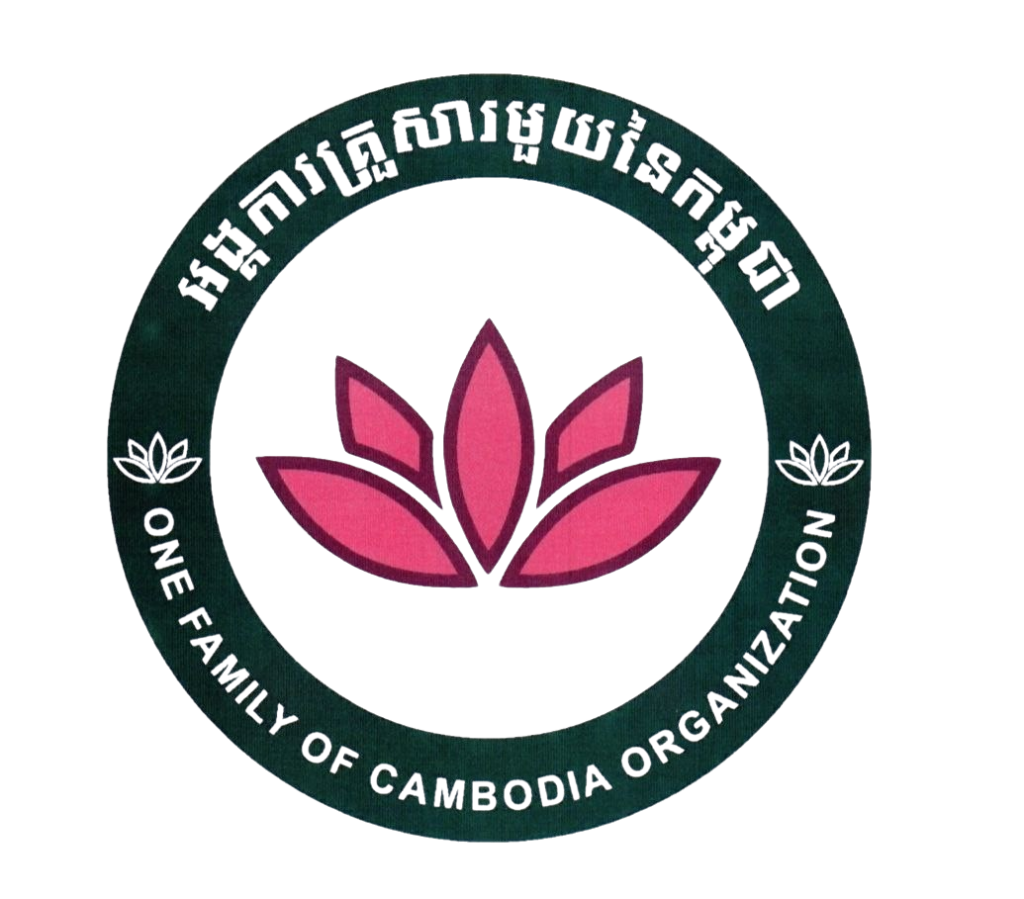info@onefamilyofcambodia.org
Mon - Sat: 08.00 am - 05:00
Priorities and Programs
One of the key strengths of our organisation is that way in which we plan our programs. We consult, engage, seek feedback, check the evidence and we do this cyclically to ensure we adjust if, and when, we need to.
All our work is informed by, and linked to, the UN Sustainable Development Goals. We take a “Strengths-based” approach in all our work – recognising and respecting rights of all individuals and communities to self-determination.
The Cambodian people are wise, hard-working, resilient, and enormously capable. It is our privilege to know them and to have the opportunity to work alongside of them.
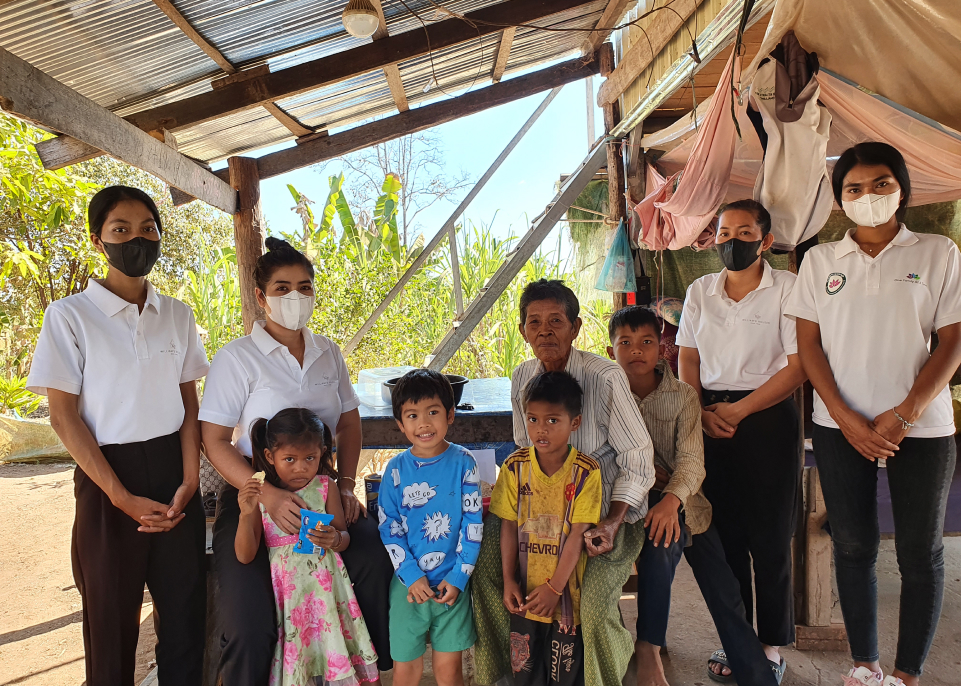
PRIORITY #1:
Improving access to quality health and wellbeing services and programs (especially for women and girls)
One of our priority areas is a focus on health and wellbeing – for all. We know that healthy lives and a sense of wellbeing are essential for sustainable development through positively impacting on life expectancy, child and maternal mortality, and illness and disease prevention and management.
Improved sanitation, maternal and child health, illness prevention and management (such as mosquito borne diseases, diabetes, hepatitis and HIV), reproductive health, and dental hygiene and treatment are all areas where we work collaboratively with local authorities to improve the health and wellbeing of individuals and communities.
The Cambodian people enjoy fresh air, sport, and beautiful fresh vegetables and fruit. Our work often focusses on ensuring that access to healthcare, dental care, nutrition, support, and education is equitable and that we leave ‘no-one behind’ due to barriers such as socio-economic factors, gender, education, or geography.
We know from anecdotal feedback from the families we work with, and numerous articles written by respected agencies, that access to affordable, fresh, nutritious and locally grown produce (such as rice, fish, chicken and vegetables) is extremely difficult for many families in Cambodia.
Our work often focusses on food and wellbeing – we buy all produce from fresh local markets and farmers and buy Cambodian grown produce wherever possible.
One of the other areas we focus on is supporting and encouraging breast feeding (where appropriate and possible) along with good maternal nutrition and water intake. Our First 1000 Days Program is an evidence-based program focussing on maternal and infant health and wellbeing from conception to the child’s 2nd birthday. We know that “the first 1000 days lasts a lifetime”.
As always, our work is informed by Village and Commune Leaders, families we work alongside and, of course, the UN Sustainable Development Goals.
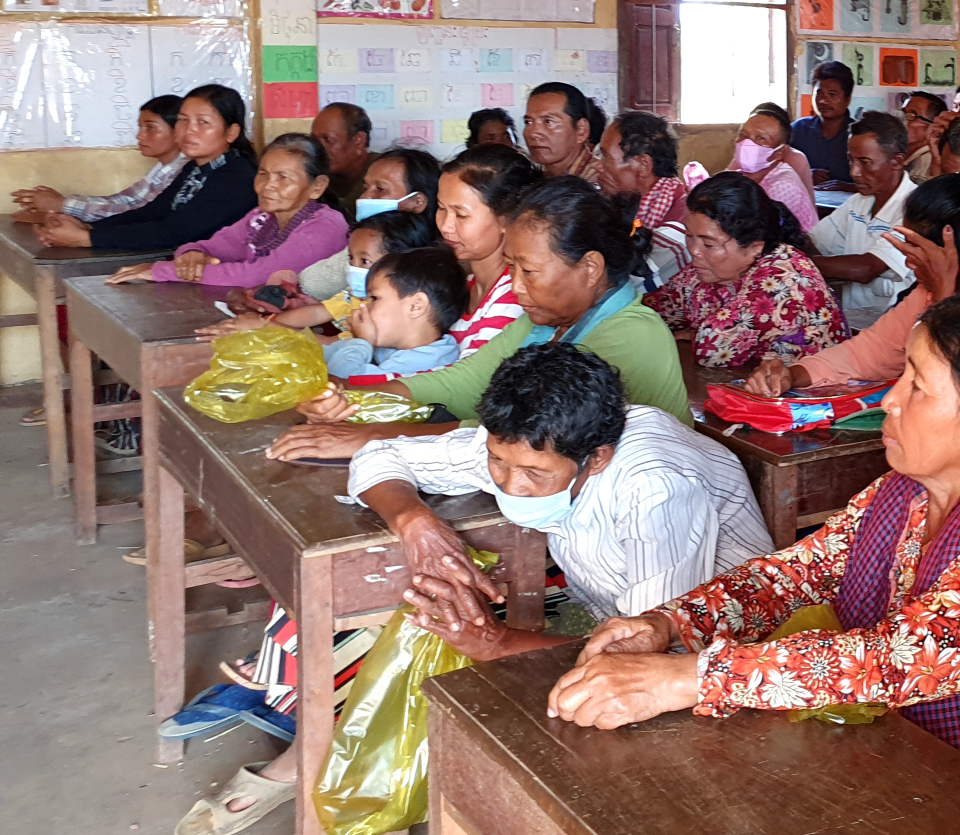
PRIORITY #2:
Improving access to quality education (especially for girls)
Education is key to escaping poverty. Enrolment rates, length of enrolment and access to education for all, especially girls are all areas where we focus our effort and resources. Coupled with increasing and sustaining enrolment, is a focus on ensuring access to nutrition – for energy and brain development.
And coupled with a focus on enrolment and nutrition, is supporting students to access school materials – we support students from lower socio-economic groups with essential school supplies and materials, school bags and school uniforms. We also supply bicycles to reduce the time taken to walk to and from school, which also supports better attendance.
Our programs, such as Rice Scholarships, have an attendance measure as a pre-requisite for the program.
For many years we have distributed reusable feminine hygiene kits made by Days For Girls Yarra Valley Chapter, and we are really proud of this partnership. Over the course of the partnership, more than 1100 sanitary hygiene kits were donated to high school students, new mums and working women in rural areas of Cambodia.
In January 2022, due to increased demand for these essential products along with challenges in getting the kits to Cambodia, we developed a new program called “Srey Period Packs”. These packs contain washable pads, underwear and soap – all in a discreet fabric bag.
In the future, our goal is to have the women from our SEW FARE – Social Enterprise make these in Cambodia. Not only will these kits prevent girls and women from missing school and work due to a lack of period products, but it will also create sustainable employment for the women of SEW FARE.
In addition, we support schools and kindergartens with classroom facilities such as installing electricity, ceiling fans, whiteboards, IT equipment and library books.
Importance of Play Children are naturally curious, right from birth, they are watching and feeling, listening, and exploring. Play is a powerful and important activity. It positively influences children’s social, physical, emotional, and cognitive development.
The best learning happens when children play, and we know that it is important to let children play every day. Children will find many things to play with inside and outside the home, whether it is playing dress ups, building with blocks, singing songs, telling stories, playing with containers or having fun outside with sand and water – play can and should be built into everyday routines and activities. Play-based learning environments encourage talking, reading, thinking, and writing.
In our work in Cambodia, we focus heavily on improving access to quality education. We work closely with our outstanding partners in Cambodia, in particular, school, and health centres. We focus our efforts to align with the UN Sustainable Development Goals SDGs.
Some of the ways OFOCO supports play-based learning in Cambodia include:
- inclusion of high quality, early childhood baby / infant toys in our First 1000 Days packs;
- setting up and keeping a play corner at the local health centres where we work (we find these toys need replenishing often and children take the toys home with them, which makes us very happy!);
- providing age-appropriate educational toys and sporting equipment to families;
- providing games, puzzles, toys and sporting equipment to schools and kindergartens in the villages where we work;
- setting up and contributing to libraries at school and kindergartens in the villages where we work;
- building playgrounds at the schools and kindergartens;
- making sure that we don’t promote gender inequality by reinforcing gender stereotypes. We don’t give “girls toys” and “boys toys”. We just give toys!

PRIORITY #3:
Creating employment opportunities (especially for women)
Our third priority area relates to employment – reliability, predictability, and regularity of employment along with decent rates of pay are all factors influencing one’s economic participation and areas where we focus effort and resources. Economic participation and independence for women is a key priority for OFOCO. We know that the evidence shows clearly that if a woman is healthy and well and able to earn a decent wage, then the whole family and broader community will benefit.
Social Enterprises:
About 8 years ago we started a sewing school and employed an experienced Cambodian sewing teacher. This group is now proudly known as SEW FARE – Social Enterprise.
The group started sewing by hand to start with and learnt maths along the way. This was a great reminder for us of the value of education – you cannot sew to a pattern of cut fabric to a pattern if you don’t have basic maths skills.
Nowadays, the women of SEW FARE – social enterprise sew a beautiful range of items which are sold in our online shop and at various outlets in Cambodia, such as Babel Eco Shop and Peace Café – both in Siem Reap.
Another of our successful social enterprises is Branching Out. This social venture sees passionate gardeners grow trees which we buy from them at fair prices. Not only does this program support income for the growers and their families, it contributes to the environment and climate also. Additionally, the Moringa trees grown by Branching Out growers are abundant in nutritional value and used widely in SE Asia. We highly recommend you try Moringa Tea – Delicious and nutritious! Over the years we have planted several hundred trees because of this innovative program!
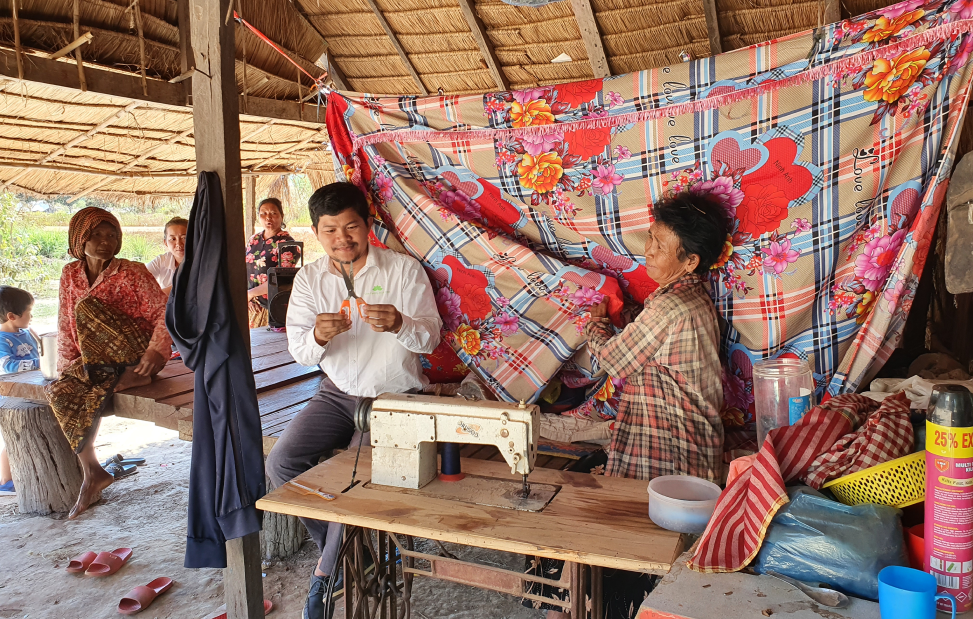
PRIORITY #4:
Supporting equity by providing access to infrastructure
Our fourth and equally important priority area involves the building of toilets, installation of water supplies and building housing.
According to the United Nations, worldwide, one in three people do not have access to safe drinking water, two out of five people do not have a basic hand-washing facility with soap and water, and more than 673 million people still practice open defecation.
We are really proud to have built dozens of houses, toilets, wells, and water supplies in many areas of Cambodia and are committed to continuing this important work.
OFAAT volunteer, John Galletti designed the “OFAAT Signature House” in 2017 and it is now very recognisable as our “brand” in the villages where we work. The houses are made predominantly from steel (contributing to longevity of the building structure, as well as protecting forests from harvesting of precious trees). The OFAAT Signature House has opening, lockable, glass doors and windows, guttering for fresh rainwater collection and many other features. The houses are enormously popular, and we have a ‘waiting list’ for future building.
We only build houses for families once Village and Commune Leaders have given their approval. Approval for a house to be built involves the community leaders verifying land ownership and receiving a commitment from the family to live without family violence, to avoid problem gambling, alcohol and drug use and to ensure that the children attend school. The families are supported to achieve these goals, through regular contact with community leaders in addition to our In-Country Coordinator.
We have a team of builders who produce high quality workmanship and who are paid decent wages by OFAAT for their work. We encourage local builders to help with the building and pay them for their work also.

PRIORITY #5:
Working with partners on the Prevention of Violence Against Women and Children
OFOCO is committed to working with communities, government, stakeholders, and partners to promote sustainable, positive change in attitudes, behaviours, and beliefs in order to prevent violence against women. This means stopping violence at the cause, well before it starts. This means changing societal norms and attitudes about gender and achieving gender equality.
In 1999, the Cambodian Government ratified the Convention of the Elimination of All Forms of Violence Against Women (CEDAW) and in 2010 signed its Optional Protocol (Fulu et al. 2015). Cambodia has a national legal and policy framework to protect women’s rights, including the Law on the Prevention of Domestic Violence and Protection of Victims of 2005, the 2007 Criminal Procedure Code, the Law on Suppression of Trafficking in Humans and Sexual Exploitation of 2008 and the National Action Plan to Prevent Violence Against Women 2013–2017 (Ministry of Women’s Affairs 2014).
Excerpt from Australian Aid Ending Violence against Women in Cambodia (EVAW Program);
Second Progress Report September 2016:
“The EVAW program of the Australian government (Australian Aid 2016) funded the first National Survey on Women’s Health and Life Experiences in Cambodia, 2014. The outcome areas were services (counselling and responses to mental health problems and support and referral for sexual harassment and domestic violence), prevention (training and community awareness through events and forums to influence knowledge, attitudes and behaviours in responding to and understanding the impact of VAW) and justice (legal intervention combining capacity building activities for local authorities to better understand their legal obligations in responding to VAW and the provision of legal services for victim of GBV). The Ministry of Women’s Affairs (MoWA) developed and implemented the second National Action Plan on Violence Against Women 2014–2018. The Referral Guidelines for Women and Girl Survivors of Gender-Based Violence promote access to services through a system of case registration, assessment and referral based on the individual needs and agreement of the survivor, recognizing that survivors of GBV have multiple needs that cannot be met by any one service provider.”
OFOCO uses a gender lens when analysing, planning, and making decisions, which means we carefully and deliberately examine all the implications of our work in terms of gender. Since we began our work, OFOCO has focussed on improving access for girls to quality education, in addition to promoting economic independence and financial security for women in the villages and communes where we work. The development of two social enterprises, SEW FARE and Branching Out, plus our Small Business Loan program are all aimed specifically at supporting women’s rights to self-determination though providing choice and options for their participation in economic / employment activities of their choosing. International evidence clearly proves that educational access and financial independence are powerful protective factors for women and girls and are significant determinants in working toward gender equity.
In addition, we have been partnering with the community and local health services to support reproductive health for teenage girls and women through culturally appropriate and sensitive reproductive health education, the distribution of hundreds of Days for Girls sanitary kits, and birthing kits in addition to supporting maternal and child health services. Enhancing access to information and resources are practical ways that we champion the self-determination of women and girls.
Our Aspire – Supporting Girls Through Education program has been running for several years and is a comprehensive model which supports many aspects of a girls’ social, emotional, academic, physical, and psychological safety and wellbeing. Through creative art programs, structured sport and outdoor programs, Class Leadership roles, provision of school uniforms and study materials, Rice Scholarships, and footwear, girls in the Aspire program have remained in school significantly longer than Cambodian averages for female student retention. In addition, the boys in the program have received mentoring in relation to respectful relationships and valuing and respecting their female class peers.
These programs alone will not achieve gender equity, nor can a single community or partner achieve this alone, nor will real change happen quickly. However, our resolve is clear, as is our commitment to working together to prevent violence against women.
OFOCO has highly qualified, expert volunteers in the field of prevention of violence against women, who work alongside of the OFOCO team, building capacity and confidence.
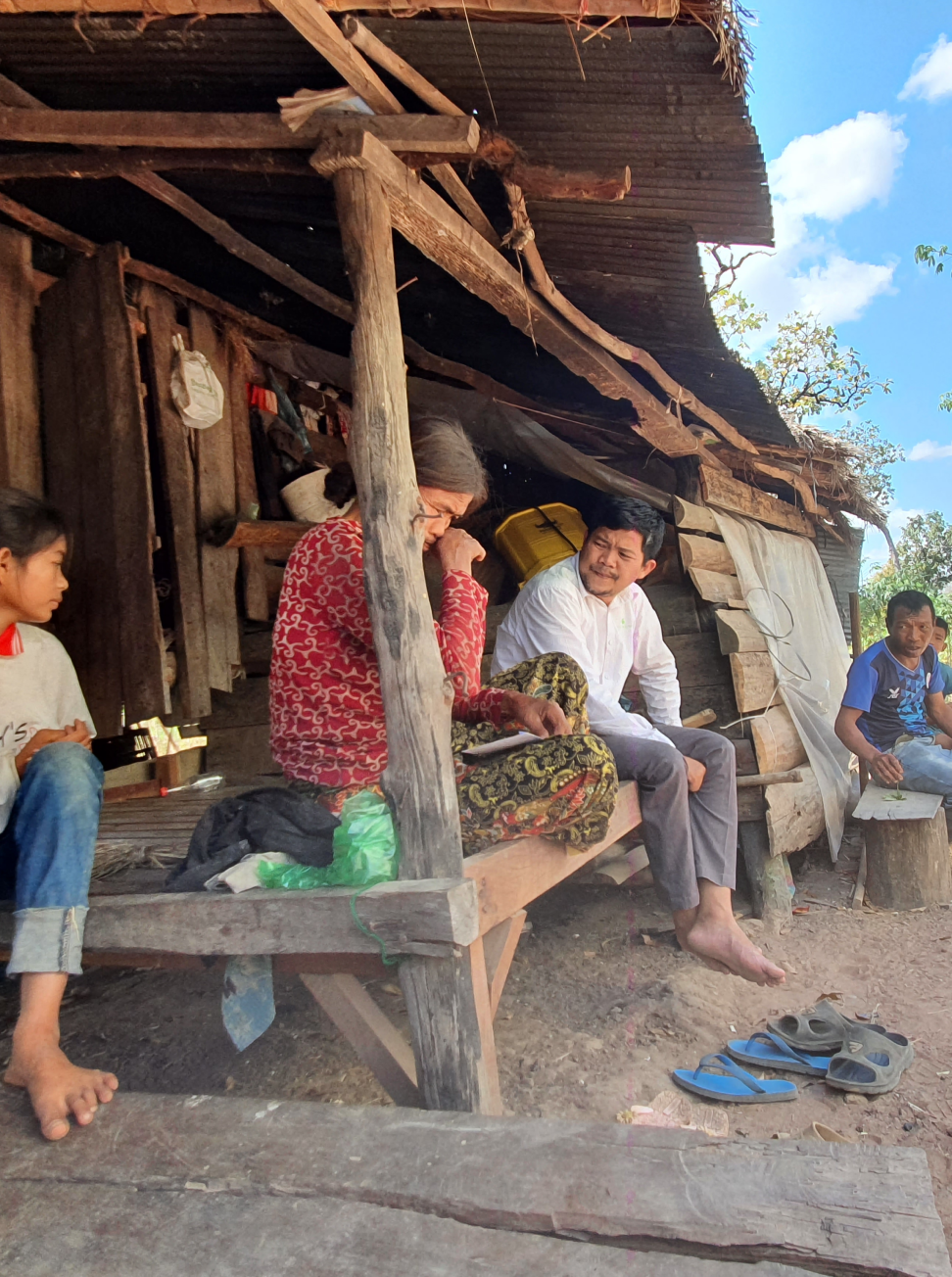
PRIORITY #6:
Supporting women and children who are responding to family violence
OFOCO recognises and honours the strength of Cambodian women and girls responding to violence.
We do not currently directly deliver family violence response services however, our aim is to ensure women and children are referred, where relevant and appropriate, to quality specialist support services. OFOCO holds a strong belief that perpetrators of gender-based violence must be held accountable for their choice to use violence. We work collaboratively with the Cambodian Justice system where appropriate and required.
OFOCO has built dozens of toilets and houses for families in need. Our efforts in building stable and safe accommodation, and private toilet facilities, recognises the strong criminogenic connection between open/outdoor toileting, and perpetration of sexual and physical violence against women and children. Therefore, building toilets nearby to a family’s house provides practical security for women and children by reducing the need for them to toilet in secluded areas in the forest or fields away from their houses and away from visibility. In the same way, having a house that is secure and lockable (doors and windows) is a strong and evidenced protective mechanism. We consider these initiatives to be part of our response programs and not as the primary prevention of violence against women. True prevention is stopping violence at the root cause – which is founded in gender inequality, unequal distribution of power and broader cultures that reward domination and violence. These gendered drivers and cultural factors are present in most societies around the world and are not reflective of Cambodian culture.
We work in collaboration with local authorities to select families most in need and have a particular focus on supporting women of all ages who live alone or with children.
OFOCO has highly qualified, expert volunteers in the field of prevention of violence against women, who work alongside of the OFOCO team, building capacity and confidence.
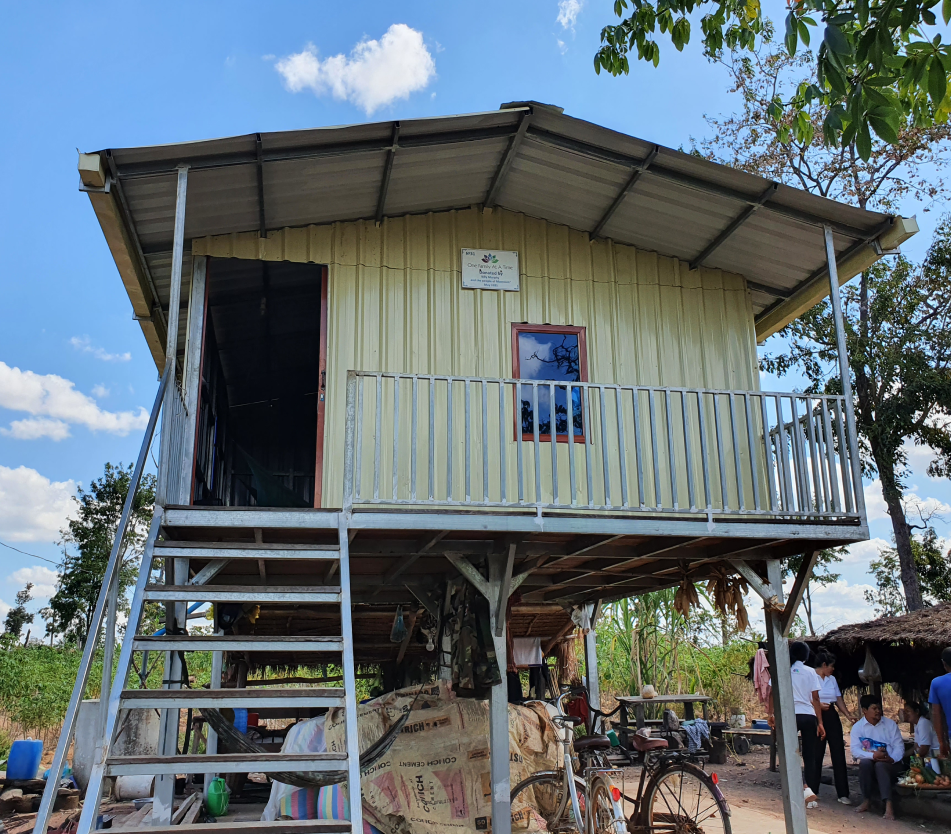
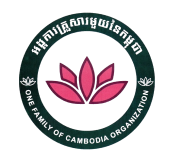
Contact
+855 12 557 553
info@onefamilyofcambodia.org
Siem Reap, Cambodia
